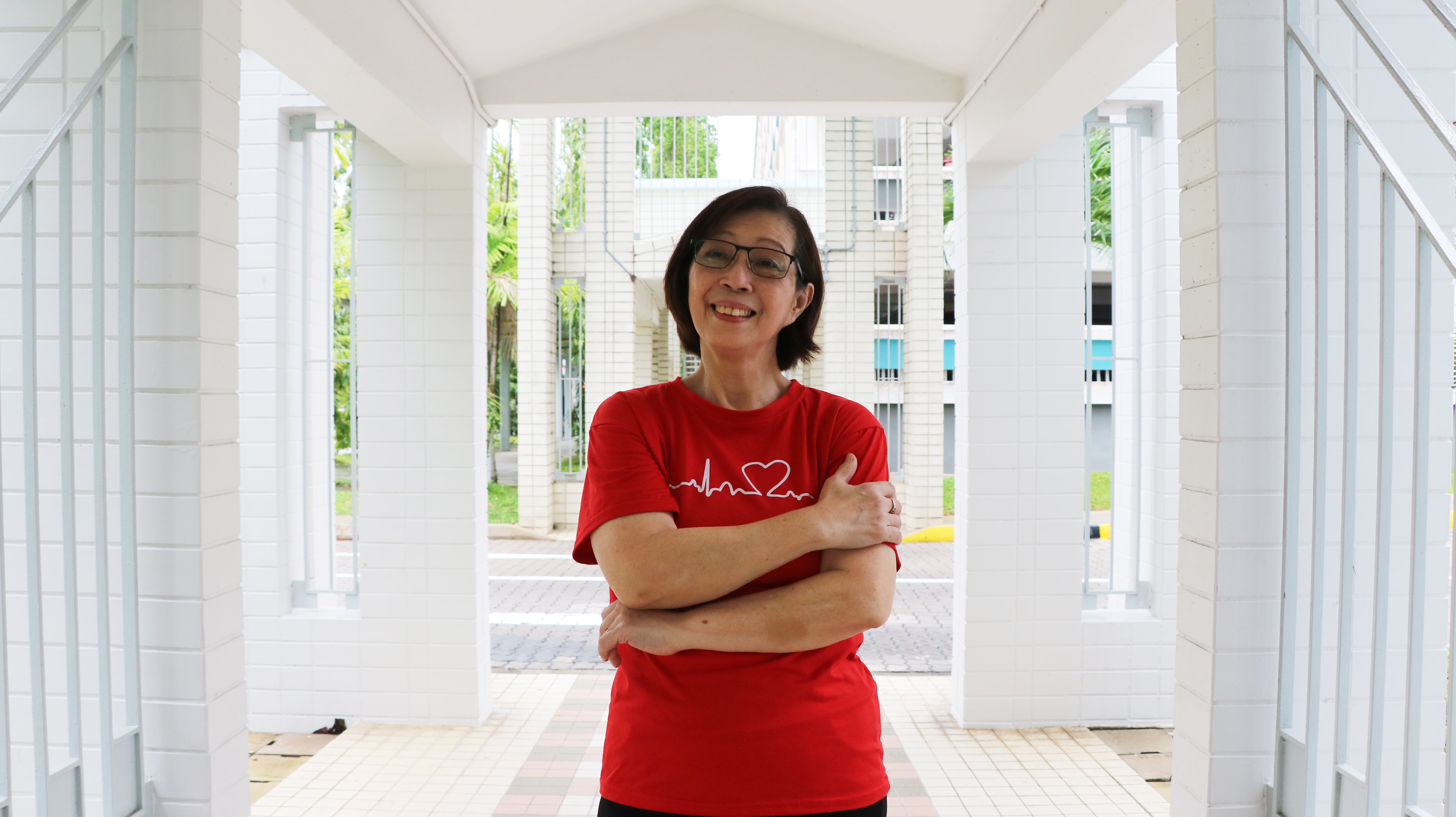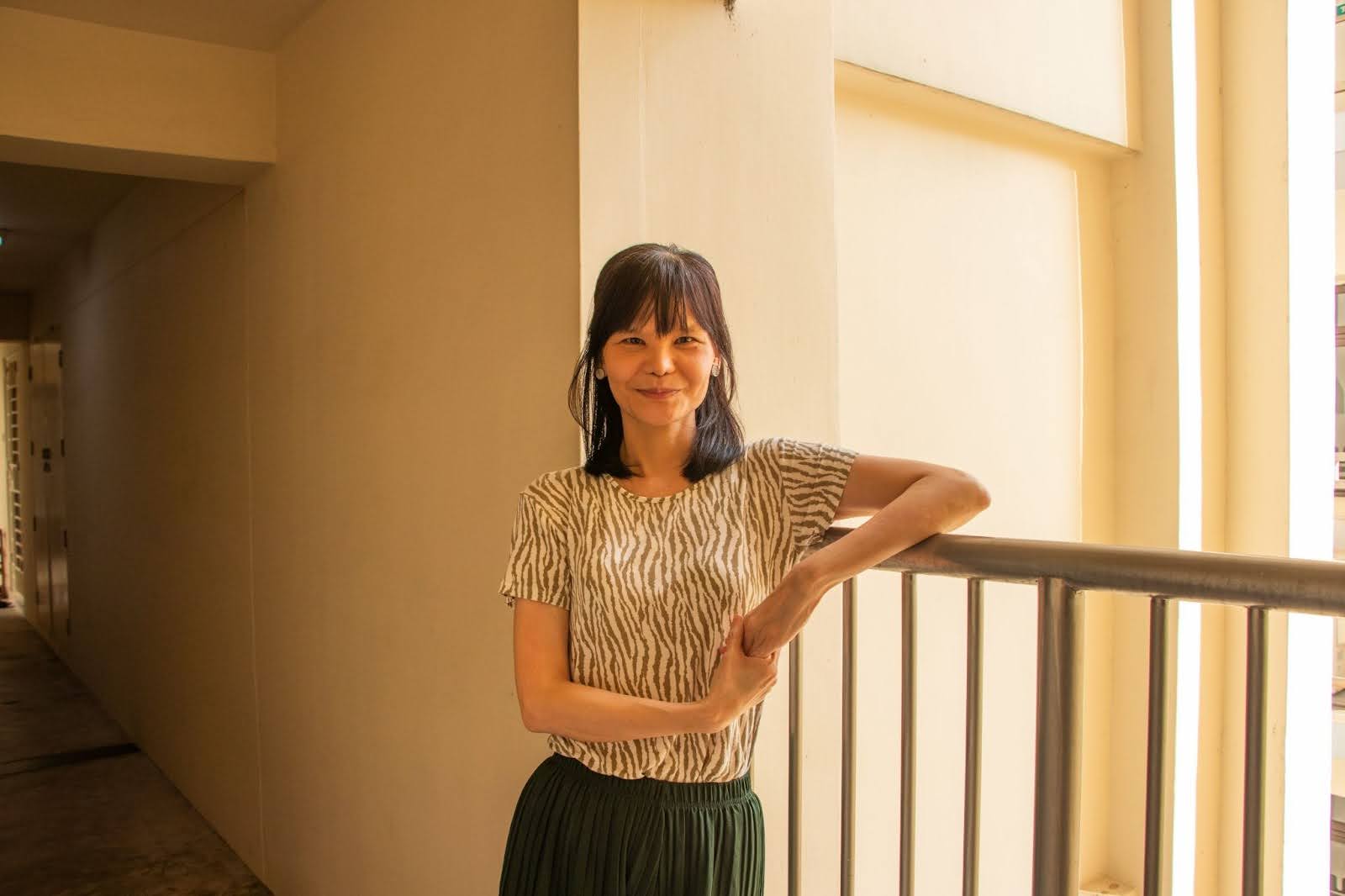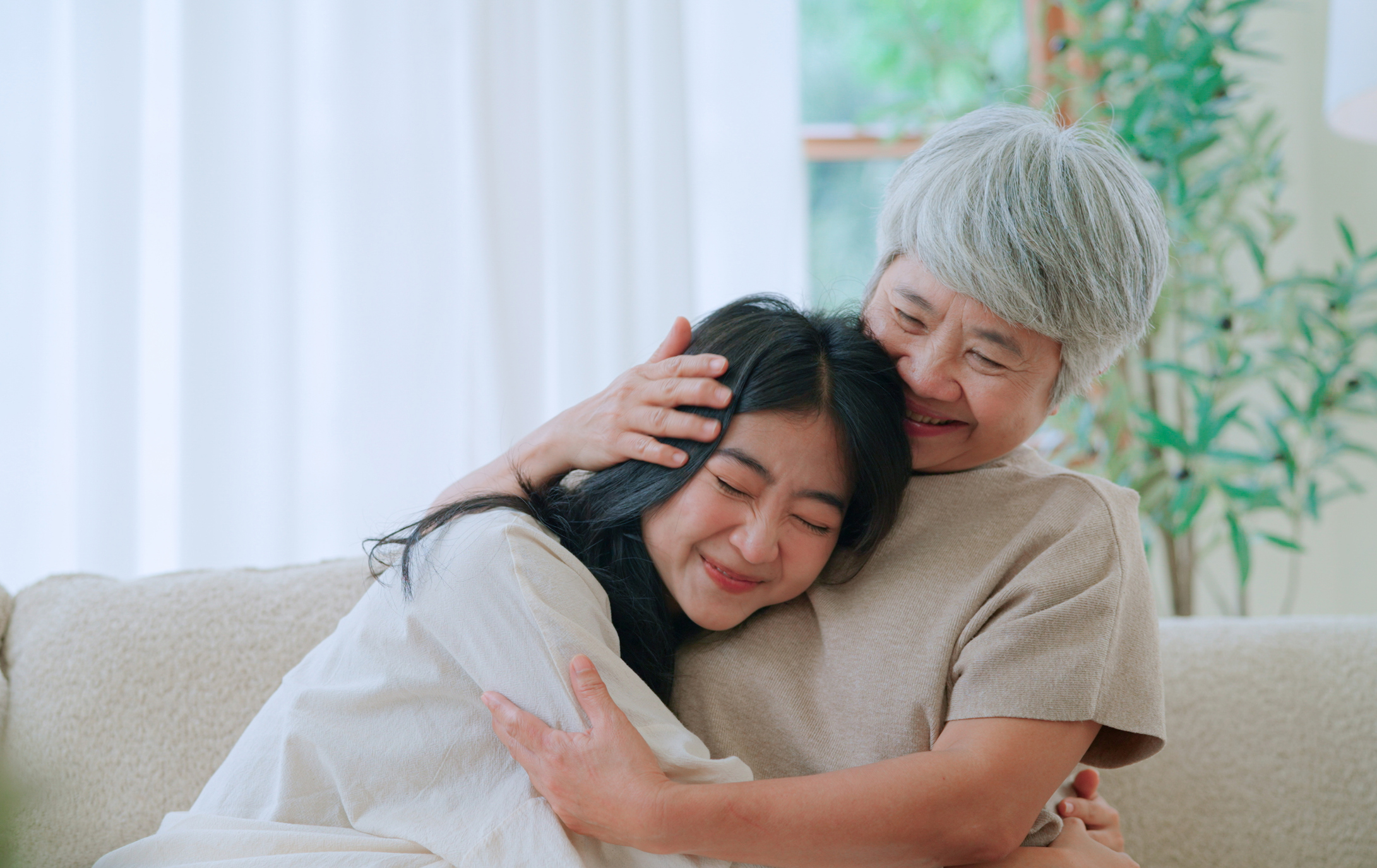On the face of it, Mr Kenny Goh’s job is pretty simple: The 75-year-old delivers daily lunches to elderly folks who cannot get their own meals. But for the volunteer at Evergreen Circle Active Ageing Centre (AAC), meal delivery is only a small part of what he actually does: He says he’s a watchdog, of sorts, for the residents he takes food to.
“I consider meal delivery to be important, even if it’s a simple job because it allows me to keep an eye on residents,” he explains. “I make sure that the seniors I deliver meals to are doing well.” Kenny, who started volunteering at the AAC in 2013, delivers meals to the same seniors every day and has become familiar with them. This puts him in a great position to observe if someone needs his help.
This energetic senior has become such a regular fixture in the neighbourhood that residents would approach him for help — something they might not have done with other people.
For instance: “One resident asked me to help him clean his place, which was really messy. He was having a hard time keeping up with the cleaning and was embarrassed to ask other people, so he approached me. So that afternoon, after I did my rounds, I helped him tidy up. Things like this make my days interesting. If I can help, then I will try to help. Or find someone else who can.”
When he’s not helping the residents, Kenny spends his day assisting the staff at Evergreen Circle AAC with activities for the seniors. Some of the things he helps with include decorating a venue if there are celebrations or arranging chairs for activities.
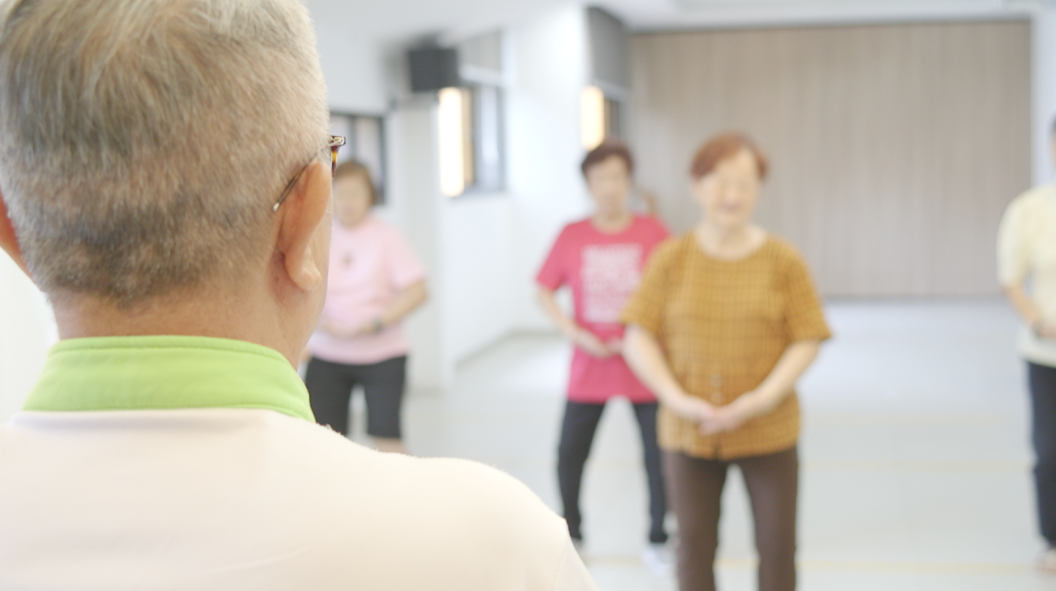
Why taking on challenges is a good thing
Kenny’s willingness to take on challenges is his defining trait, he says, even when he was working in telecommunications. His job in the semiconductor segment of that company took him from China — where he is originally from — to different countries around the world, despite not knowing any English at the time. That didn’t stop him from accepting the challenges of the job, though.
“I had a reputation in the company. My boss would call me ‘Mr I Don’t Know,’ because when he asked me about something I have no idea about, I would say ‘I don’t know.’ I was honest about it,” he laughs. “But I made it a point to learn and learn well.” This attitude stood him in good stead when he was assigned first to the United States, and then Japan. Both times, he told his boss he didn’t know the language.
“The first time I was sent to the States, I told him, ‘Boss, I don’t know how to speak English’. My boss just told me to learn and so I did.” Years later, his boss once again told him to pack his bags and move to Japan. “I told my boss the same thing, ‘I don’t know how to speak Japanese.’ My boss just said, ‘I sent you to the US. You didn’t understand English and now you do. So go learn Japanese.’ And so I did,” he laughs.
Aside from English, Japanese, and a smattering of Malay, he can also speak several Chinese dialects — Mandarin, Hokkien, Hakka, Cantonese, Pinghua, and Hainanese among them — a skill that comes in handy as a volunteer.
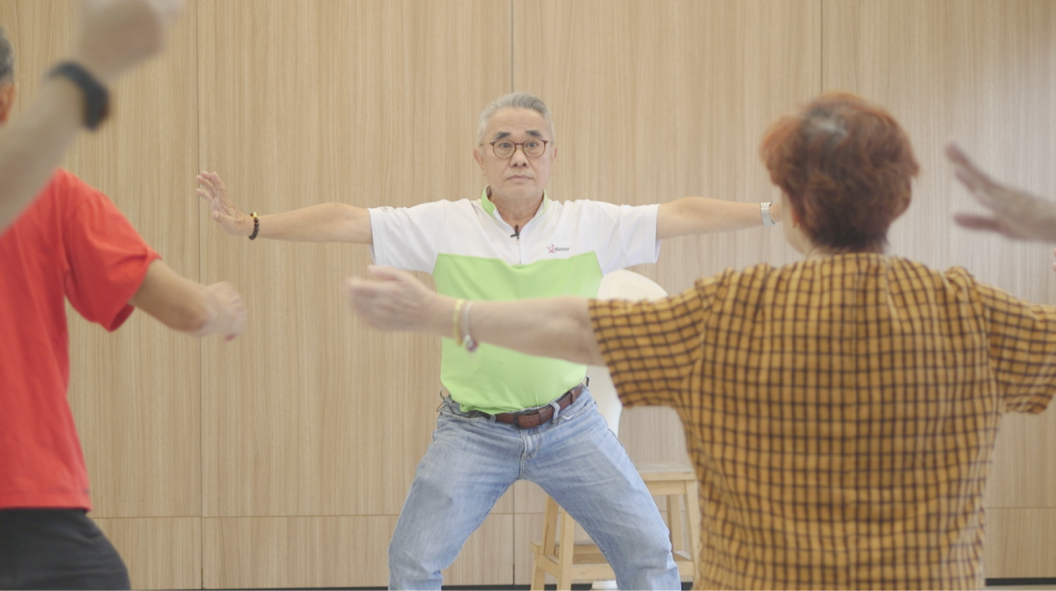
The benefits of Ba Duan Jin
His skill at communicating, a natural curiosity to learn new things, and an inclination to be active gave him an edge when he started teaching Ba Duan Jin, a form of qigong, to seniors every Friday at Evergreen Circle AAC.
“What I teach is a modified sitting version of Ba Duan Jin,” he says. While Ba Duan Jin is usually done standing, his version takes into account his students’ health issues. “They are still the same movements but I changed some of the moves because some of them have back pains or high blood pressure, among other health concerns.”
Kenny believes that the activity has a lot of benefits. “During the first class, they’ll tell me that they have chest pain or chronic shoulder pain and they’re not sure if they can do the exercises. I tell them to be careful when they try, and I observe them closely. After several classes, they’ll tell me that their health has improved — that the chest pain or shoulder pain is gone.” The positive feedback has attracted more students to attend his class — he started out with six students, and now has about 30 seniors from 60 to 90 years old attending his classes.
Aside from the obvious physical effects of Ba Duan Jin, Kenny believes that the benefits go much further. “I think, being able to move and exercise has a great benefit in preventing dementia.” That’s why he’s keen on having more people in class. “I wouldn’t mind having several sessions and even having a class for those who can do Ba Duan Jin standing up, which is the original way to do it.”
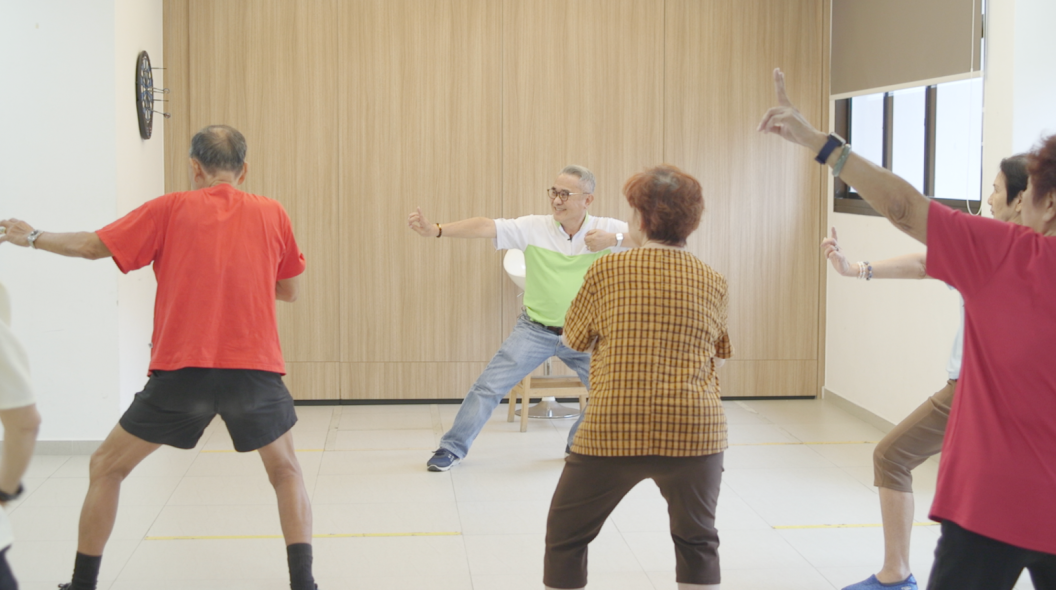
Why being active is beneficial
Kenny lives out the active lifestyle himself just as he advocates for it. Aside from his work as a volunteer, he’s also a keen gardener and loves to travel. But volunteering and helping others are what he loves best — it allows him to be part of other people’s lives, he says. “In my class, I would ask participants what they’re eating or drinking, and tell them to eat and drink in moderation. I’m what they call ‘kay poh’ about these things, but they don’t mind. They like that I care.”
In parting, he says: “My philosophy is always to be positive. I’m a positive person and if I can help and teach, then why not? I am not stingy. I can share what I have and what I’ve learned.”



